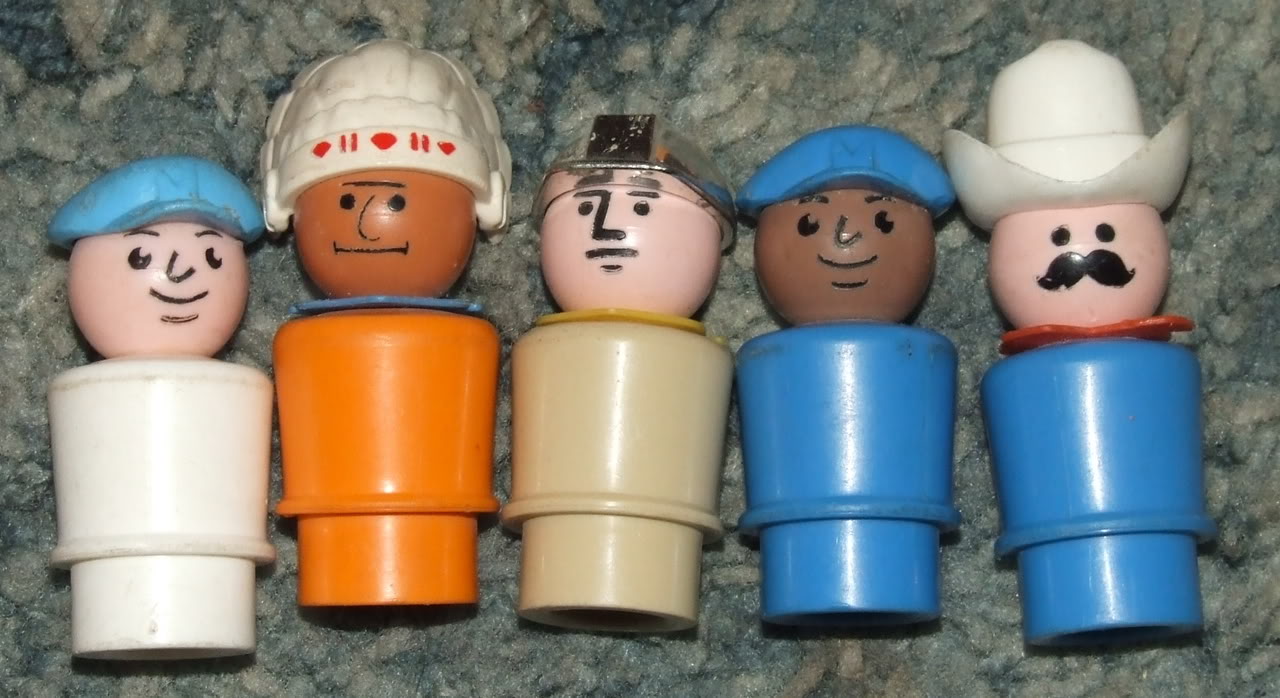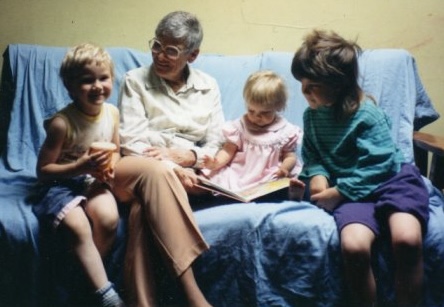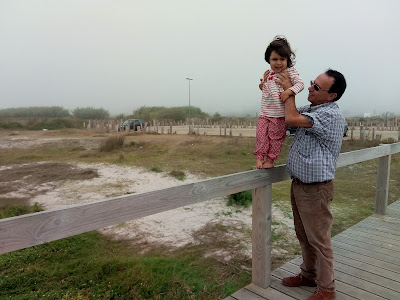photo by Rosie Moon
Thursday, November 20, 2025
Learning for fun
photo by Rosie Moon
Thursday, October 16, 2025
When to say no
Sandra Dodd, response in 2000 to: Can anyone explain to me "unschooling"?
It's like "just say no."
Just say no to school years and school schedules and school expectations, school habits and fears and terminology. Just say no to separating the world into important and unimportant things, into separating knowledge into math, science, history and language arts, with music, art and "PE" set in their less important little places.
Most of unschooling has to happen inside the parents. They need to spend some time sorting out what is real from what is construct, and what occurs in nature from what only occurs in school (and then in the minds of those who were told school was real life, school was a kid's fulltime job, school was more important than anything, school would keep them from being ignorant, school would make them happy and rich and right).
It's what happens after all that school stuff is banished from your life.
photo by Rosie Moon
Thursday, October 9, 2025
What John Holt didn't know
NOTE FROM SANDRA: I was speaking, not writing, so when you get past that stuttery beginning, it might flow.
One thing that John Holt, when he was writing about Teach Your Own, he, too, had a curriculum in mind. He, too, was thinking, not "Teach a curriculum," but "Do this, instead of school, until school is out, and then you will be done, and it will be cool, you will have dodged the bullet, you will have missed out on the damage of school." That’s worthy all by itself.
But John Holt didn’t have any children. He didn’t actually do what he was writing about people doing. I respect him, I love his books, I am glad he did what he did. But then people come along, after that, and they do it. And then they shared that with each other, and then people did it better than they saw their families do it. Other families say, “Well, I wish I hadn’t done this; it was all right, but oh, I wish we had done this." And so entire lives of young people have been lived now since John Holt died, who didn’t go to school. And what those families discovered, that John Holt could not have known, is that if you live your life receptive to the learning around you, accepting of input, appreciative of the other people around you who know things, and of the resources around you, and trying not to be prejudiced against input like television and videogame and comic book, then what happens is, the parents' learning kicks back in. The parents, who probably had sort of calcified because of school, they soften back up, and they start to want to learn. And so they are learning along with their children, or in a parallel-play kind of way. They might all be in the same place all learning different things, sharing the good parts.
SandraDodd.com/familybonding
photo by Sandra Dodd
of Keith and Holly, 2015
Thursday, July 31, 2025
Helping teens
Holly has had a few jobs. One was working at a skateboard and clothing store in a mall a few miles away. One was working at a flower shop just a few hundred yards away; she walked. But the shop had another shop on the air base, and sometimes she worked there, so she had a base pass and a key to both shops. When Holly's jobs require driving, we let her use a car. Some of her school-attending friends are told they can't get a job unless they buy a car first. It seems to be a way for the parents to say no and then blame the kids for it.
Some mainstream families press their teenaged children to get jobs, and shame them if they fail, while putting conditions on when and where they can work. The result is that getting a job was just one more "do what the parents make you do" situation, and the jobs aren't fun; they're an extension of school and of parental control.
When teens or young adults have chosen to have a job without desperation for money, and when they are accustomed to learning all the time and living joyfully, they are a different sort of employee.
photo by Cathy Koetsier
Tuesday, March 25, 2025
Snakes and wild berries

When a science-minded kid loves to take the dog down by the river and look for wild berries and snakes, some parents say, "My kid just wants to play. He's not interested in learning. He'll never learn science just playing."
Each little experience, every idea, is helping your child build his internal model of the universe. He will not have the government-recommended blueprint for the internal model of the universe, which can look surprisingly like a school, and a political science class, a small flat map of the huge spherical world, a job with increasing vacations leading to retirement, and not a lot more.
photo by Sandra Dodd

Sunday, January 19, 2025
Don't stop too soon
It seems our detractors say "If my kids aren't in school and I'm not using a curriculum, I'm unschooling."
It seems to me that stopping there will lead to frustration and failure and the continuous little additions of rules and lessons and requirements.
It's enough if one is looking toward school and wants to declare the kids are out AND they're not going to use a curriculum. So at that point in the sort (if we were writing a computer program), they've passed through two gates:
School? if no, then homeschooling
Curriculum? if no, then unschooling
But will that last years? It's the label of a moment. "Now what?"
It's not a computer program. For me it's about natural human learning, not about not-school and not-curriculum.
photo by Jo Isaac
in Australia
Friday, November 29, 2024
Illuminating the world

I remember being in school and asking "Why do we need to know this?" I asked it, other kids asked it, and one answer I remember was when I asked my Algebra II teacher, when I was 15, why we needed to know how to figure out square roots. He said it was in case we wanted to figure out how far away stars were. I said, "Don't we have people to do that?"
I didn't care how far away stars were. I thought it should be left to those who really are curious or have a need to know. That need to know the distance of stars has never been good for anything at all yet, as far as I know.
It wasn't long after that (six years) that I myself was a teacher in that same school. Luckily for me and for all the world, I wasn't teaching algebra or astronomy. But still I would be asked "Why do we have to learn this?" Sometimes I gave a serious answer, and sometimes a philosophical answer. Sometimes I made light of it. Sometimes the honest answer was "You don't have to learn this, but I have to try to teach it so I can get paid." Or "Only some of you will need to know it, but they don't know which ones yet, so I have to say it to everybody."
Then one day, the question came phrased a new and better way: "What is this GOOD for?" The answer I gave then changed my life and thinking. I said quickly "So you can get more jokes." I think we were reading a simplified Romeo and Juliet at the time. I could've gone into literature and history and fine arts, but the truth is that the best and most immediate use of most random learning is that it illuminates the world. The more we know, the more jokes we will get.
photo by Sandra Dodd
(click the photo if you don't know what it is)
Sunday, November 24, 2024
Know what you mean
I say "What do you mean?"
Usually the question is asked by rote, the same way adults ask stranger-children "Where do you go to school?" Most people just blink and stammer, because they don't even know what they meant when they asked it.—Sandra Dodd
(with links to other sets of questions and answers)
photo by Colleen Prieto
There was an error in the e-mail version, which went to this related page Those pages are better linked back and forth now, too.
Monday, November 11, 2024
"It's fun."
I don't use the word "unschooling" except when I'm talking to homeschoolers.
When I'm talking to relatives or people at the grocery store or whatever, I say "We homeschool." Or more often, "Our kids don't go to school."
IF they seem interested, or if they make one of those canned-conversation responses like "Oh, that must be a lot of work," or "Oh, I could never to that," I just smile and say "It's fun. We mostly just have a lot of fun." or "We don't use a curriculum, we just learn from everything around us."
So within the inside of the inside of discussions with homeschoolers, I'm definitely an unschooler, but there's no advantage I've found in using that term with people who only want a one-minute "hi, how are ya? cute kid" conversation.
photo by Roya Dedeaux
Saturday, August 31, 2024
Determination, focus and interest
I can't begin to say everything I feel about video games... from my beginning ambivalence / aversion / annoyance / fear / more fear, etc. all the way to today's complete acceptance of my child's love and devotion to figuring out a game, his determination, his focus, his interest, his ability to explain it, talk about it passionately, willingness to give Ravi and me tutorials/workshops on a game etc.
He is currently playing a game that is about a guy in school. And the classes need you to figure out games/words/math etc. Then you pass the game. I help him out with certain parts when he asks for it. Been very interesting to watch his intensity in figuring out those puzzles/tests that the school teachers are throwing out to this character. The character gets bullied and keeps getting detention. And Raghu is wondering why this is so. Leads to conversations about the way the video gamer designed the game.
2010
photo by Penny Clarkson
Sunday, August 11, 2024
Seeing people as people
At what age did you begin providing regular social interactions with other children?I will say "from birth" and then I will ask you to replace "other children" with "other people."
Tadaa!!!
Your problem is schoolish.
You're believing that five year old girls need to play with a dozen other five year old girls. If you turn 180 degrees away from the myth and fantasy of how many friends kids have at school, and look at the real world in which you plan to live, things will look different.
Find people to visit, find places to go where other people will be. Begin to see people as people, rather than as pre-schoolers or school-age, or second grade. Just practicing that will take you MUCH nearer to peace about interactions with other people.
photo by Roya Dedeaux
Saturday, July 6, 2024
Happy to see the day
fourth post on this legacy page
SORRY the link above didn't work in e-mail; I've restored it, I hope!
photo by Vlad Gurdiga
Sunday, May 5, 2024
"What about socialization?"
And I wait patiently for them to think of a response.
Usually the question is asked by rote, the same way adults ask stranger-children "Where do you go to school?" Most people just blink and stammer, because they don't even know what they meant when they asked it.

photo by Sandra Dodd
___
Friday, May 3, 2024
Helping grandparents

Meredith wrote something in April 2011 about what the grandparents want...
It's helpful to keep in mind that one of the big things grandparents want is a sense of connection with their grandchildren. When kids aren't in school, that can feel awkward - what the heck do you say to a child other than "what are you doing in school?" Especially if you only see him twice a year? It can leave extended family members stymied. So it helps a whoooole lot to feed them useful information and conversation starters in the form of something grandparents usually like anyway - pictures and stories of their grandkids. Keeping a blog or sending regular notes (via facebook or plain old snail mail) goes a long way in that regard. And! they get to see their beloved grandchildren happy and adventurous, which can help to reassure them on that score.
Unschooling can come across as some kind of weird cult if you try to explain it from a theoretical side first. Start with happy kids living rich, full lives and school starts to seem less of an issue.
photo by Sandra Dodd, of Dodd kids and paternal grandmother, early 1990s
Tuesday, April 2, 2024
Describing unschooling
If parents of school children ask, I usually say our homeschooling is pretty eclectic. I may give certain examples such as visiting interesting places, doing experiments, playing 'learning' games, reading stories, having conversations of events that happened in the past, talking about famous people, making things, hanging out with friends, etc. Sometimes I share with them a detailed description of an interesting day that we've had, especially if it has impressive signs of learning that they will recognize.
photo by Kelvin Dodd
Sunday, August 6, 2023
Enthusiasm and clarity
photo by Shan Burton
Saturday, April 8, 2023
Rebuilding yourself
in a passing discussion
photo by Sandra Dodd
of old stairs in France,
on a day I was with Schuyler
Friday, March 24, 2023
Another step; another
So the history of "radical unschooling" came from someone saying "Well we're not that radical," and me saying "well I am."
I think unschooling in the context of a traditional set of rules and parental requirements and expectations will work better than structured school-at-home, but I don't think it will work as well for the developing souls and minds of the children involved.
And those who are not radical unschoolers would look at that and say "What do their souls have to do with unschooling?"
It has to do with philosophy and priority.
What do you believe is the nature of man, and the duty of a parent?
What do you believe hinders a child, or harms the relationship between a parent and a child?
photo by Cathy Koetsier
Thursday, March 9, 2023
Compassion for passions
What are your passions? HOW did you learn to do those things? In a classroom?
Two of my passions as a child were dogs and horses. Dogs and horses are NOT taught in any grade, middle, or high school *I* know of. But I wanted to learn everything I could about them. My parents gave me dogs and horses. They bought me books and paid for me to take riding lessons and dog obedience classes. They paid for dog and horse shows and equipment. My passion threw me into reading every book I could find (there were no videos back then—nor "Animal Planet").
By twelve I could identify every breed of dog and horse that I had ever seen or read about and tell you how it was developed, where, why, and by whom. I spent every weekend and every afternoon at a dog show/horse show/event/trial or just hanging around the stable or kennel. I asked thousands of questions and "got my hands dirty." Many of my friends were adults with the same passions. Training, breeding, grooming, showing, husbandry—all of these things I learned because I was consumed by them!
But, of course, dogs and horses are NOT school subjects—and are completely unimportant in the school world. What if I had waited for a teacher to come along and say, "Today we are learning all about dog and horses"? Not only would I have waited all my life, the teacher would only have given me a "taste" of the subject!
OH! And you *can't* make a living with dogs and horses—right?
Stage one is often referred to as DEschooling. It's the period of time we need to give ourselves in order to "step away from the box" of school and school-think. Ask yourself why and how you learned your passion: whether it was music, cooking, flying, gardening, or long-distance running. Or even more "academic-like" passions, like Shakespeare, chemistry, World War II, or a foreign language. When you are comfortable with how learning happens by indulging in passions and making connections in your learning, you are quickly heading towards stage two.
SandraDodd.com/kellylovejoy/stages
photo by Cathy Koetsier
Friday, February 17, 2023
Rich, full lives
It's helpful to keep in mind that one of the big things grandparents want is a sense of connection with their grandchildren. When kids aren't in school, that can feel awkward - what the heck do you say to a child other than "what are you doing in school?" Especially if you only see him twice a year? It can leave extended family members stymied. So it helps a whoooole lot to feed them useful information and conversation starters in the form of something grandparents usually like anyway - pictures and stories of their grandkids. Keeping a blog or sending regular notes (via facebook or plain old snail mail) goes a long way in that regard. And! they get to see their beloved grandchildren happy and adventurous, which can help to reassure them on that score.
Unschooling can come across as some kind of weird cult if you try to explain it from a theoretical side first. Start with happy kids living rich, full lives and school starts to seem less of an issue.
photo by Cátia Maciel















